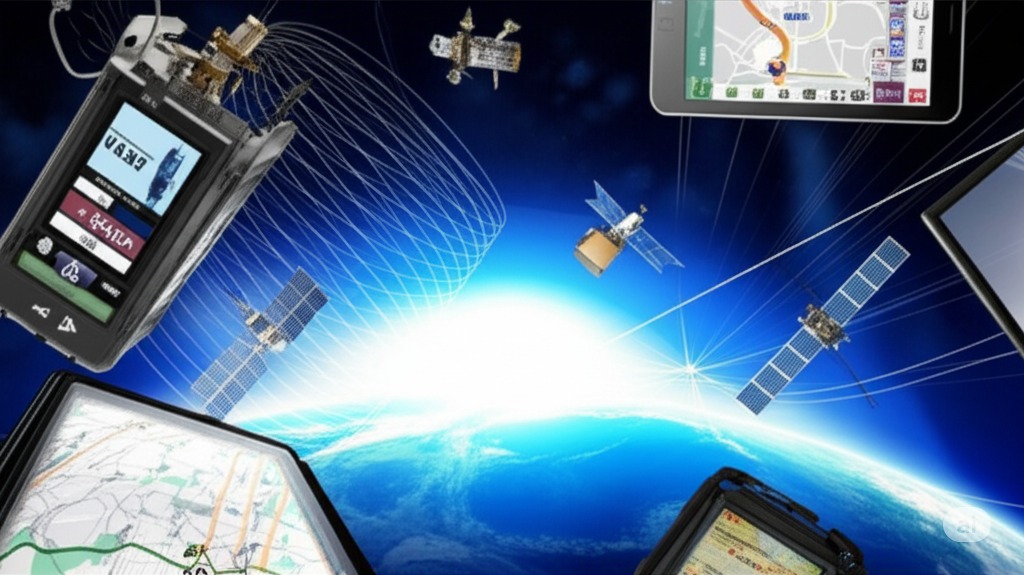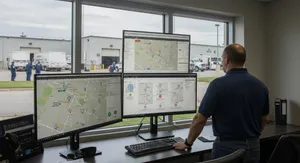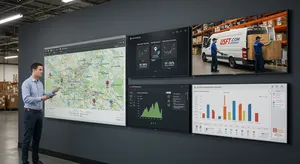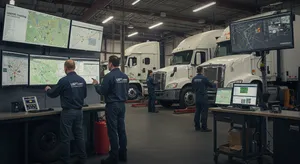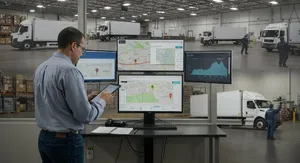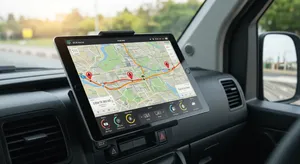Essential System Features
- Real-time vehicle tracking with 30-second update intervals
- Route optimization algorithms reducing drive time by 15-25%
- Driver behavior monitoring with eight distinct safety metrics
- Geofencing capabilities for automated alerts and boundary management
- Maintenance scheduling with automated service reminders and tracking
- Fuel monitoring and consumption analysis for cost optimization
- Mobile applications for drivers and fleet managers
- Comprehensive reporting with customizable dashboards and analytics

